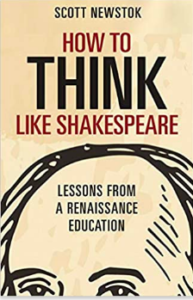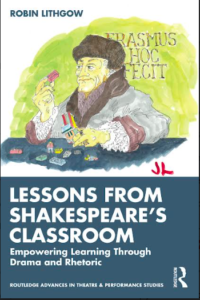

I’m so honored by this endorsement! Scot Newstok’s marvelous book, How to Think Like Shakespeare, totally inspired me to finish mine and get it published. I’ve read it twice, refer to it often, and wrote about it in a post two years ago. I’ve always hoped it would somehow end up as a companion volume, addressing the same topic from a different perspective and, hopefully, inspiring others to broaden the field.
This is from the post referred to above, from early 2021. (It comments on only the first three chapters. I intended to write another post about the other chapters, but Covid happened and the world got very confusing for awhile. I’ll have honor that pledge now!):
What, he asks, are the ends of education? In Shakespeare’s day it was the training of capable and critical citizens able to function “for the benefit of the commonwealth.” Today it seems to be test scores. He tells a poignant story about his seven-year-old daughter who, upon being asked if she had learned any new words at school responded, coldly, in a whisper, “Assessment!” He goes on to say, “The reflexive call for educational ‘targets’ in current jargon makes me feel as if we adults have become like William Tell, cruelly aiming arrows at our own children. Our means (passing the test) have overtaken our ends (human flourishing).” That is to say that if you take the long view of current trends in education, we are, in fact, participating in child abuse.
Bravo! Well said! Spread the word!!!
Leave a Reply
Want to join the discussion?Feel free to contribute!